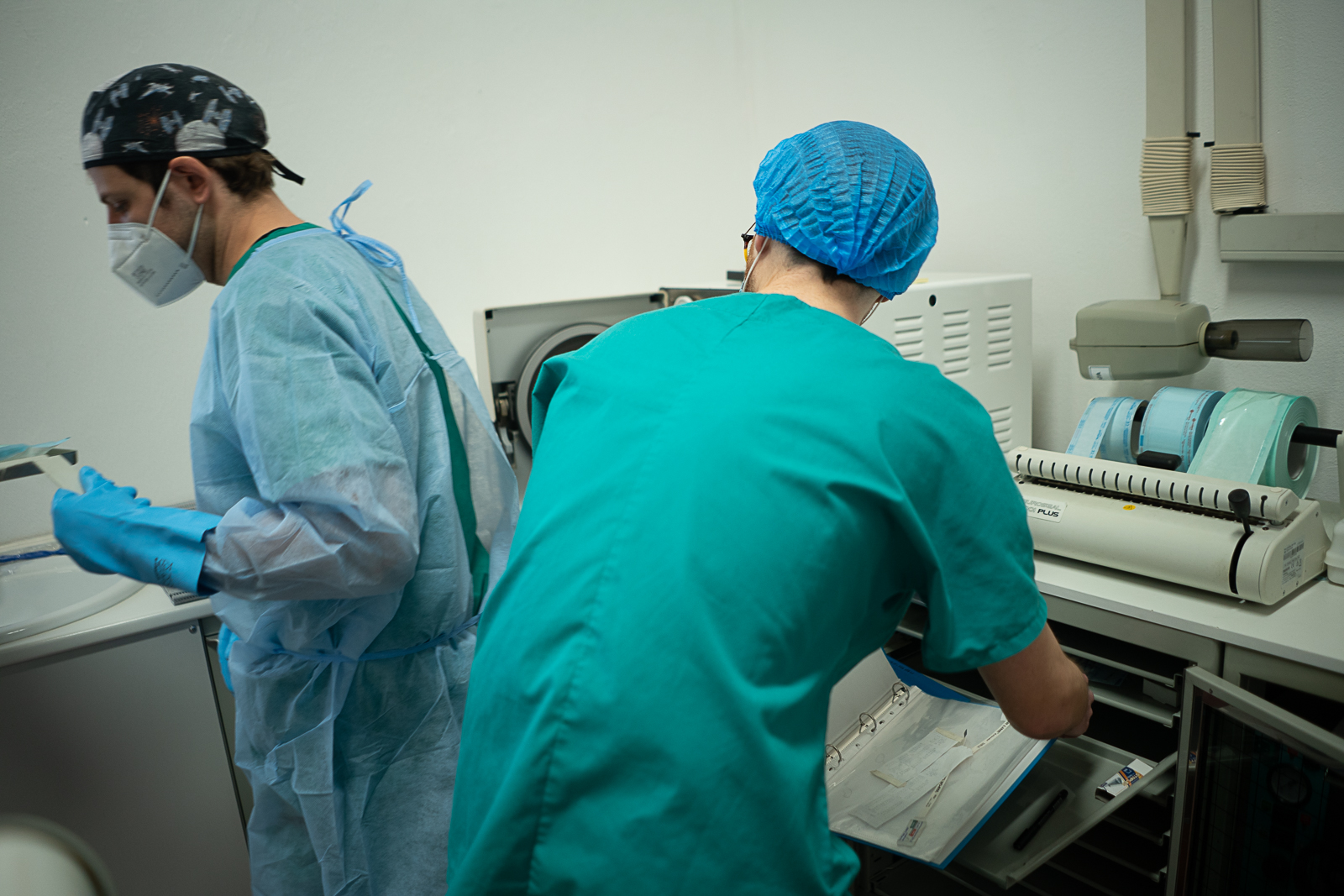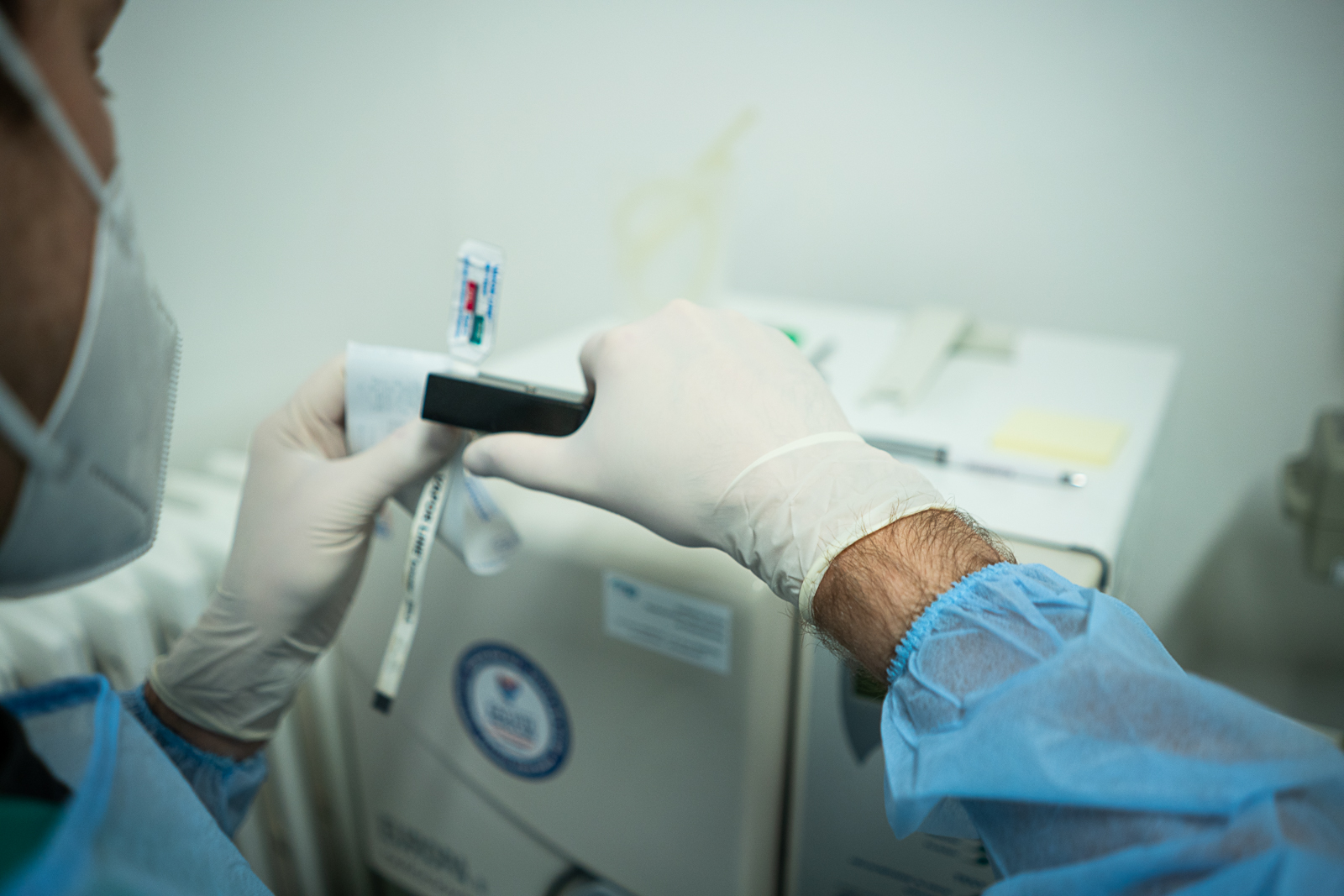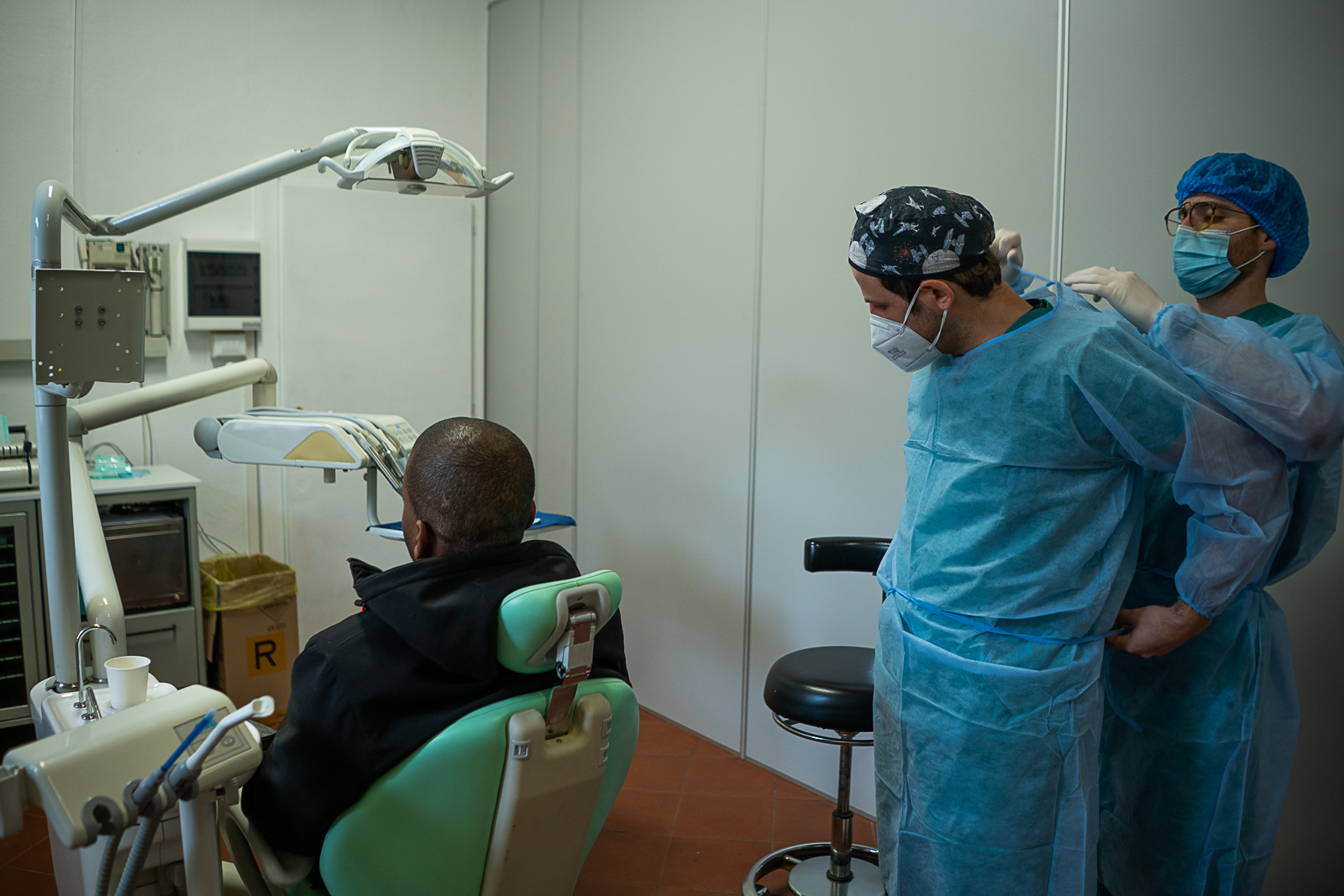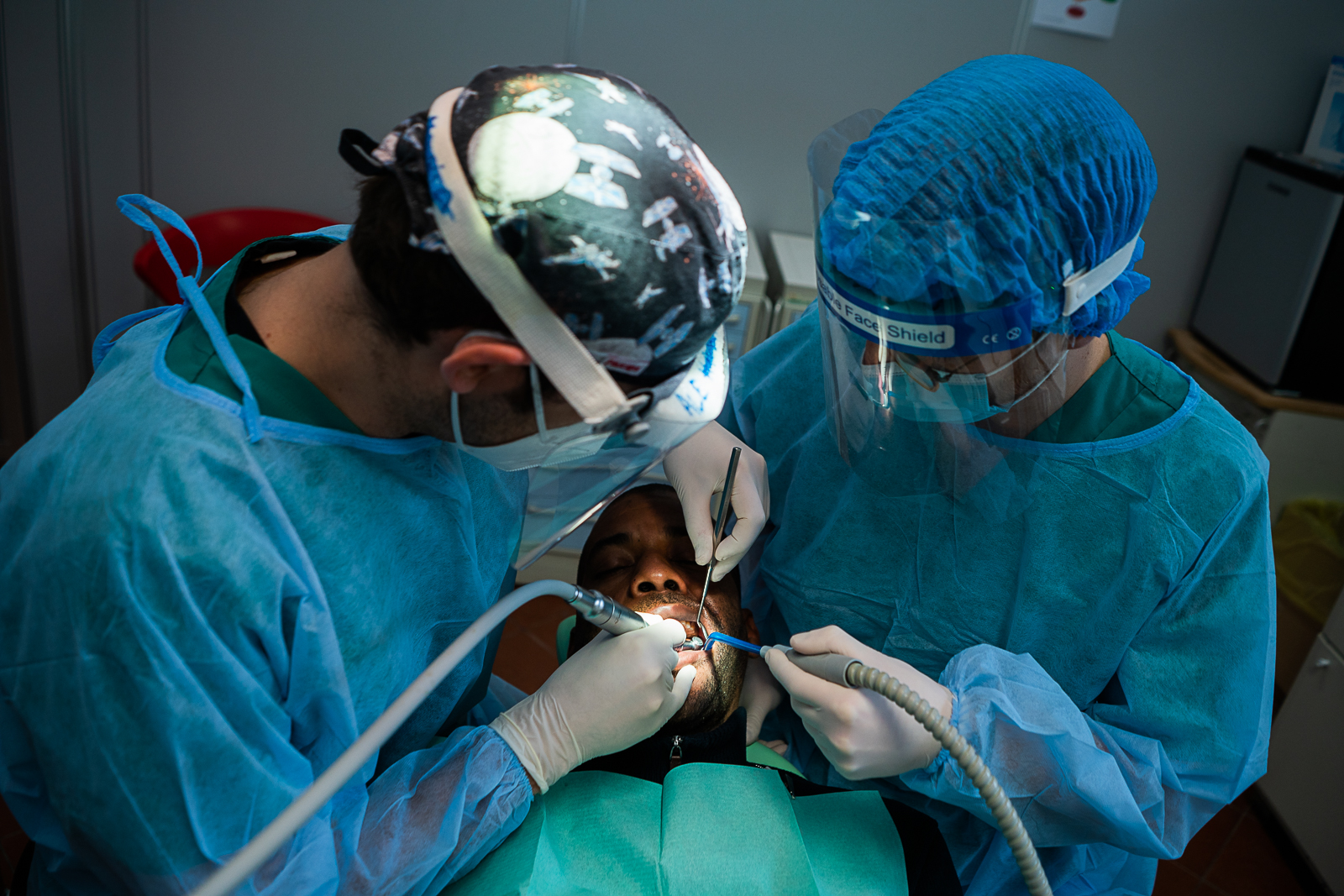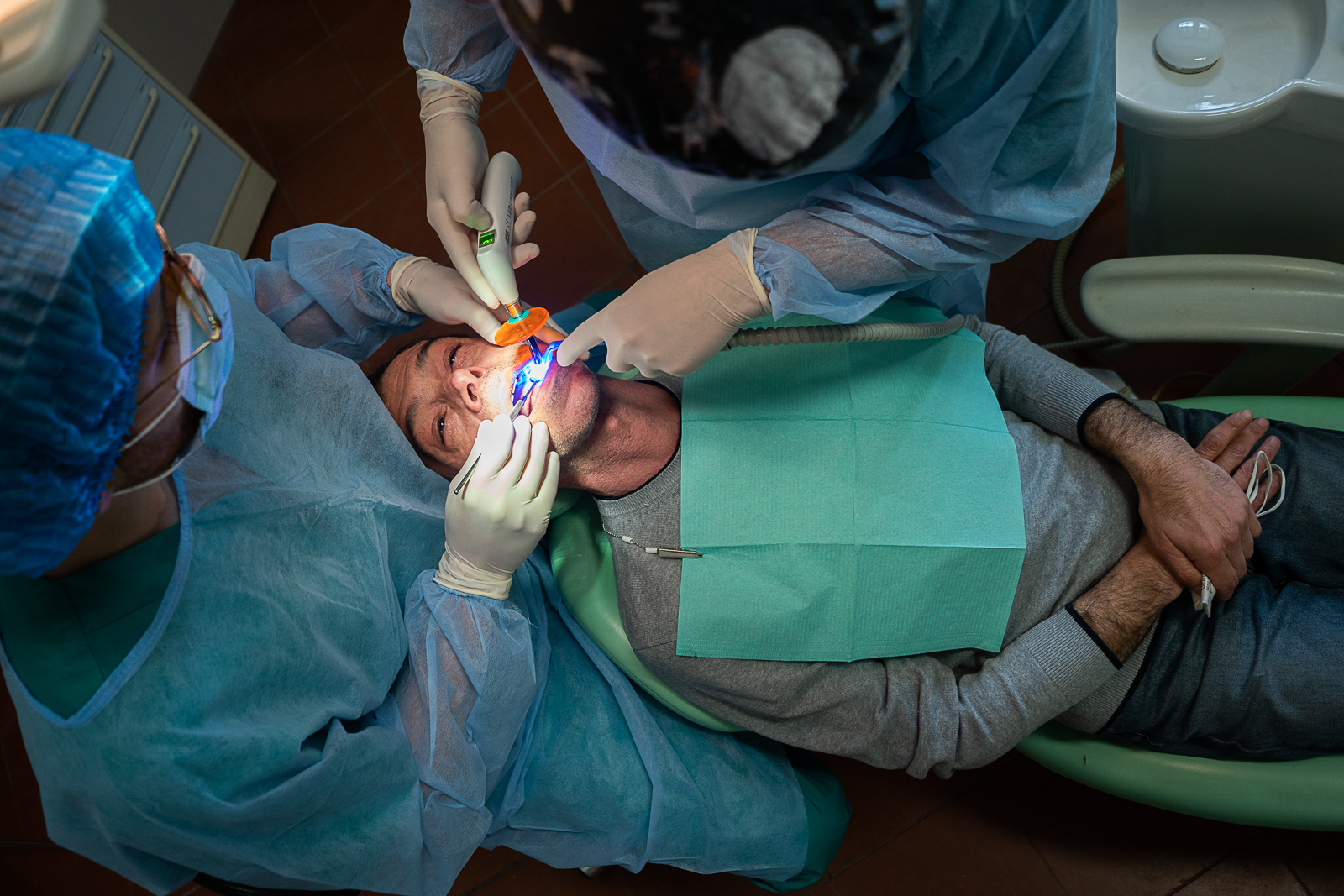The following is the story of the dental clinic that has opened in Bologna, in vicolo Bolognetti, in the courtyard of the Làbas social centre. One of the dentists involved told us how this initiative came about and what the first two months of opening were like.
Our dental clinic is part of the wider Làbas Laboratorio di Salute Popolare project. It has an original group in six young dentists to which other are being added.
The Laboratorio was set up in 2019 to provide health assistance to those who were unable to access the national health system directly due to various contingent situations such as life on the streets or migration. This led to the creation of solidarity relays aimed at helping those who lived on the streets (they started during the lockdown months), a nursing clinic, a psychological support desk that complemented the one already opened, Approdi, which deals specifically with support for people who have experienced migration.
The idea of a dental clinic, on the other hand, was born overseas, in Patagonia, Argentina, where we went on a university exchange in 2019. In Argentina, due to the socio-economic and political situation, there are many voluntary organisations and, in particular, the university we attended offers services both in the capital and far away, as far as Patagonia. This experience made us realise that with a bit of organisation it would be possible to provide this kind of help and replicate something similar in Italy. We thought of Làbas, still unaware that the LSP was being set up in the meantime.
So when we came back, we approached this community center, we put forward our proposal, and it was well received: LSP was thinking of something to offer a tangible and concrete service, such as dental care. First of all, we started to go out into the streets with relays to see if there was demand for this type of treatment, and since the demand was alive, we started working.
The clinic is the fruit of a year’s work. We emptied out colleagues’ offices in exchange for equipment and organised self-financing events to put together all the necessary. Once it was ready and certified by the ASL, we opened the doors of the clinic at the beginning of March.
Obviously, the intention of the Laboratorio is not to replace the national health system. In fact, LSP aims to intervene where the National Health System is unable to reach and targets those people who have no way of interfacing with it. So, for example, in the field of dentistry, those who have an ISEE of less than 8,000 euro can be treated by the SSN, while our target patients do not have an ISEE at all – for example, an undocumented migrant cannot have an ISEE, an Italian living on the street cannot if she has lost her residence. Our aim is to take care of these people.
Word of our work is certainly spreading, since the people who come to us are not only those previously reached by the relays or who already know Làbas, but many are sent to us by various reception and aid cooperatives. For example, some Ukrainian women who have fled the war have come to us: a lady who forgot her prosthesis, some girls have contacted us because they were receiving orthodontic treatment in their country and now they need to be looked after in some way.
It also happens that various aid and shelter organisations have to cover the (minimised) out-of-pocket costs of certain procedures. For example, a young man came to us with a disastrous mouth situation and a budget of thousands of euros, while we offered to do all the remedial and prosthetic rehabilitation work for less than a tenth.
In fact, unfortunately, there are costs involved in keeping the business going: the consumable material is consumed, the fixed material is consumed in the long run, the cost of the prosthesis is always added to that of the dental technician, etc. As for the latter figure, we are trying to create a network where each person provides one or two services per year so that we can guarantee prostheses, practically eliminating the cost. As far as the latter is concerned, we are trying to create a network where each person provides one or two services a year so that we can guarantee the prosthesis and practically eliminate the cost.
Since the beginning of March, we have treated about 70 patients, opening on Monday and Friday afternoons. For the most part, they belonged to the social groups that we were expecting and which we targeting: many people from North Africa, Sub-Saharan Africa, Pakistan, migrants and Italians, homeless, many of whom were approached by the relays, which remain an important tool in the area. But we also realised that many others, despite having an ISEE, are not informed about the possibilities of being treated by the national health system or find problems. And this is a second reality that we did not expect, at least not as numerous.
So now, two months after opening the doors, listening to the stories of all those who come to us, we have realised how potentially and necessarily expandable the project is. In fact, we are convinced that health is a right to be guaranteed to everyone, not least that of the mouth, which improves the quality of life and is in direct correlation with the conditions of those forced to live on the margins.
Any contribution of time, material or money is always welcome and necessary to keep the clinic open.
WARNING: the gallery contains pictures of dental procedures. All photos have been taken by Dario Maccariello.



